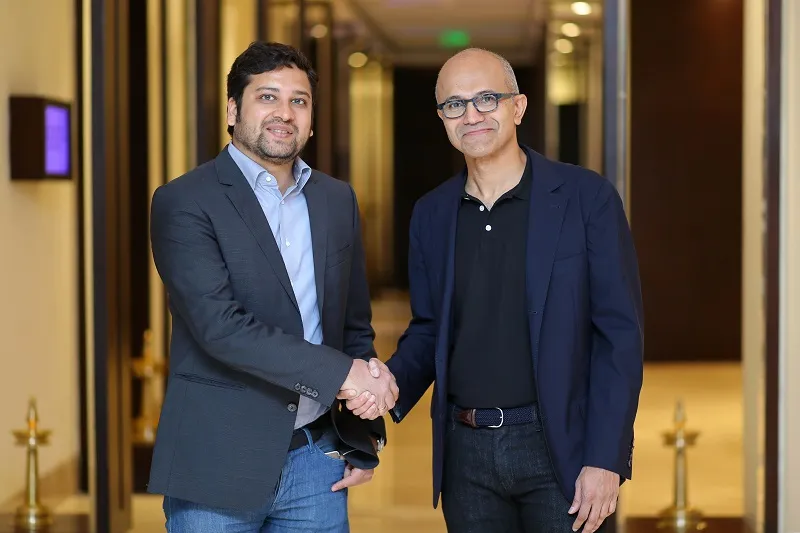Microsoft forges cloud partnership with Flipkart to take on Amazon's AWS
On the backdrop of Microsoft CEO, Satya Nadella's visit to India, Microsoft and Flipkart, on Monday, announced a strategic cloud partnership to provide Indian consumers a better online shopping experience. As a first step in this collaboration between the two companies, Flipkart will adopt Microsoft Azure as its exclusive public cloud platform.

Nadella noted that Microsoft aims to empower every Indian organisation with technology, and the key to this would be by forging partnerships with companies like Flipkart. He said,
Combining Microsoft’s cloud platform and AI capabilities with Flipkart’s existing services and data assets will enable Flipkart to accelerate its digital transformation in e-commerce and deliver new customer experiences.
Starting with computing infrastructure, Microsoft Azure will ultimately add a layer of advanced cloud technologies and analytics to Flipkart’s existing data centres. Microsoft also believes that its strong presence in India along with its global scale allows for continued growth and expansion, setting the stage for the long-term partnership.
Binny Bansal, Group CEO and co-founder, Flipkart, said that Flipkart, currently in its tenth year of existence (having been launched in 2007) is committed to the the vision of transforming commerce in India through technology. He added,
Given Microsoft’s strong reputation in cloud computing, coupled with scale and reliability, this partnership allows us to leverage our combined strength and knowledge of technology, e-commerce and markets to make online shopping more relevant and enriching for customers.
From cloud nine to the cloud wars
Amazon started Amazon Web Services (AWS) in 2003 after experiencing the need for cloud services first hand and then estimating the the scope that the sector had. At an event in Bengaluru in 2016, Andy Jassy, CEO of AWS, had noted that though Amazon was a technology company at heart it ventured into the services space with AWS without much fanfare. He said, "But it really changed the way we thought about development."
In another recent interview, Jassy said that for companies like Oracle and IBM and some of those folks (Microsoft), the model that Amazon was pursuing was disruptive to their core businesses and hence they abstained from entering the cloud services sector. So Amazon got a headstart of six to seven years, and was on 'cloud nine' with relatively no competition.
Then companies like IBM, Oracle, Google and Microsoft entered the foray and the cloud wars as we know it began. According to a report from Forrester Research and Fortune, Microsoft has been making great progress in this sector and Microsoft's Azure is now a strong number two in public cloud, while Google, IBM and others battle it out for the number-three slot.
In October 2016, a report in Business Line noted that Flipkart had ventured into the world of servers on its own after experiencing glitches during their first Big Billion Day sale. Peeyush Ranjan, as Head of Engineering at Flipkart, had told Business Line, “We are building the same kind of data centres Facebook and Google have. We are working with the exact same vendors.”
Flipkart then had relatively glitch-free Big Billion Day sales in the subsequent years. Now, rather than continuing investing in its own infrastructure, Flipkart seems to have partnered with an enemy of its enemy, Microsoft, by taking its business to Microsoft Azure.
Just four days ago Microsoft had also announced that it aims to combine the cloud, AI, research and its industry expertise to transform healthcare with its Healthcare NExT initiative, in collaboration with UPMC (University of Pittsburgh Medical Center).







